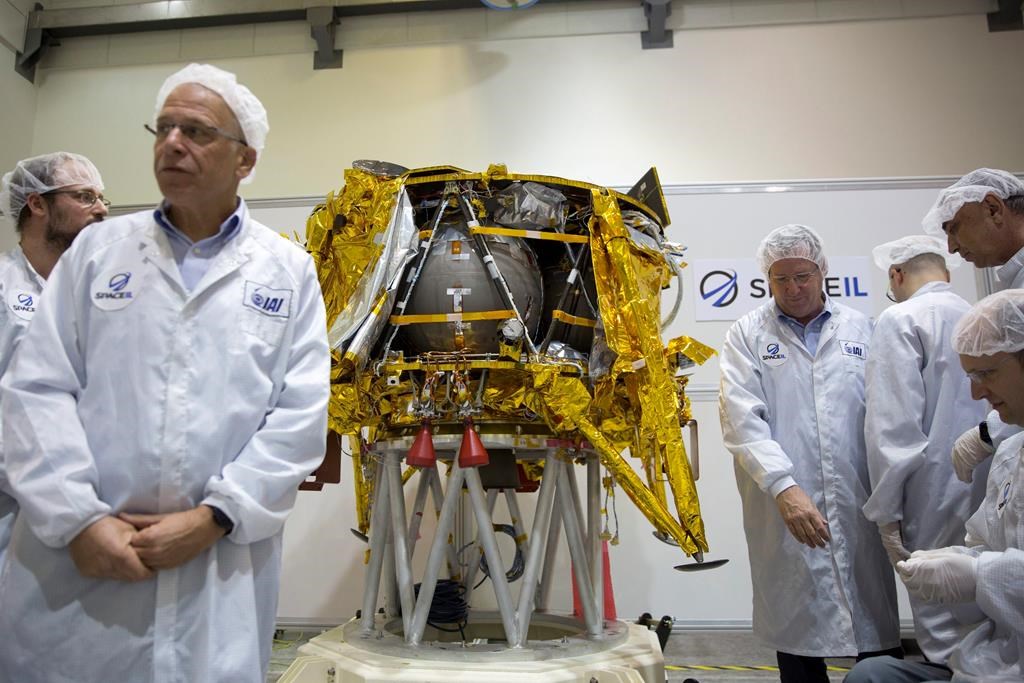Israel is aiming to land on the moon after hitching a ride with SpaceX.

A communications satellite for Indonesia is the main cargo aboard the Falcon rocket, scheduled to blast off Thursday night. But Israel’s privately funded lunar lander – a first not just for Israel but commercial space – is generating the buzz.
WATCH: SpaceX launches first U.S. national security space mission

Israel seeks to become only the fourth country to successfully land on the moon, after Russia, the U.S. and China. The spacecraft – called Beresheet, Hebrew for Genesis or “In The Beginning” – will take nearly two months to reach the moon.
“We thought it’s about time for a change, and we want to get little Israel all the way to the moon,” said Yonatan Winetraub, co-founder of Israel’s SpaceIL , a non-profit organization behind the effort.
WATCH: VP Mike Pence announces Trump’s Space Command after SpaceX scrubbed launch

The four-legged Beresheet, barely the size of a washing machine, will circle Earth in ever bigger loops until it’s captured by lunar gravity and goes into orbit around the moon. Touchdown would be April 11 at the Sea of Serenity.
NASA’s Apollo missions in the 1960s and 1970s took about three days to get astronauts to the moon 240,000 miles (386,000 kilometres) away, but they used monstrous Saturn V rockets. The $100 million Beresheet mission couldn’t afford its own rocket – even a little one – so the organizers opted for a ride share. That makes for a much longer trip.
WATCH: SpaceX suffers ‘bummer’ landing as first-stage booster crashes on re-entry

“This is Uber-style space exploration, so we’re riding shotgun on the rocket,” Winetraub explained at a news conference on the eve of launch.
The U.S. Air Force also has a small research spacecraft aboard the rocket, for a one-year mission in orbit around Earth.
The Beresheet mission originally was part of the Google Lunar XPrize competition and even made the final cut before the contest ended last year without a winner. The organizers decided to press ahead on their own, with donations from billionaires as well as schoolchildren.
WATCH: SpaceX launches Falcon 9 rocket carrying 64 small satellites

Lunar surface operations are meant to last just two days. Beresheet will measure the magnetic field at the landing site, and send back data and pictures. A time capsule is aboard the lander – which includes a picture of Israeli astronaut Ilan Ramon, who died aboard space shuttle Columbia in 2003 – as well as a lunar library containing 30 million pages on a disk from the U.S.-based Arch Mission Foundation.
SpaceX plans to recover the first-stage booster, which flew twice last year, with a touchdown on an ocean platform.
- Invasive strep: ‘Don’t wait’ to seek care, N.S. woman warns on long road to recovery
- Ontario First Nation declares state of emergency amid skyrocketing benzene levels
- Do Canadians have an appetite for electric vehicles? Experts are divided
- Nearly 200 fossil fuel, chemical lobbyists to join plastic treaty talks in Ottawa



Comments